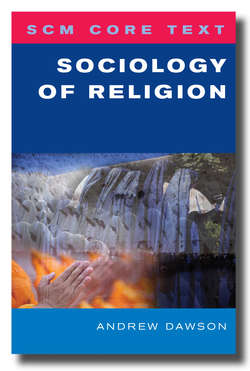Читать книгу SCM Core Text Sociology of Religion - Andrew Dawson - Страница 50
На сайте Литреса книга снята с продажи.
Religious critique
ОглавлениеIn respect of religion’s origins, Marx adopts a theory which had been around for some time and to which a number of his German idealist contemporaries (for example Ludwig Feuerbach) subscribed. Here, religion is held to originate through primitive humanity’s projection of personal characteristics onto otherwise impersonal natural forces which come eventually to be regarded as divine (that is, ‘God’) (Feuerbach, 1957). Understood as an attempt to render nature amenable to human persuasion (for example through prayer, sacrifice and thanksgiving), this act of projection is said to result in the eventual denigration of humankind. This is the case, it is argued, because all that is good about humanity is projected onto nature – now divinized and understood as infinite, omnipotent, omnibenevolent etc. – while humankind, in comparison, regards itself as corrupt and sinful. Humanity has thereby purchased leverage upon nature with its own self-abasement; the consequences being ‘the more man puts into God, the less he retains in himself’ (McLellan, 1977, p. 79). In effect, religion is ‘the holy form of human self-alienation’ (McLellan, 1977, p. 63).
Originating through the alienating processes of projection, religion is treated by Marx as inherently mystifying. For Marx, the act of ‘mystification’ involves the misrecognition of a thing as something else (McLellan, 1977, p. 511). Mystification is important because it represents a distortion of relations which allows for people and things – by virtue of their misrecognition – to be treated in ways in which they should not. For example, the opinion that society is both unchanging and hierarchically ordered by God-given nature is an act of misrecognition which both justifies (through ‘moral sanction’) unequal structures and imbues the downtrodden with an air of resignation and passivity. As a result, religious duty is portrayed as wilful obedience to one’s betters for which one receives immaterial consolation through the assurance of eternal blessedness. Criticism of religion, then, involves the unmasking of its mystifying nature and starts with the assertion that ‘man makes religion, religion does not make man’ (McLellan, 1977, p. 63).
Marx’s understanding of religion as ideology is not, however, purely abstract. In contrast to the likes of Feuerbach, Marx claims, he fully appreciates the fact ‘that the “religious sentiment” is itself a social product’ (McLellan, 1977, p. 157). In his most famous assertion in respect of religion, Marx states that:
Religious suffering is at the same time an expression of real suffering and a protest against real suffering. Religion is the sigh of the oppressed creature, the feeling of a heartless world, and the soul of soulless circumstances. It is the opium of the people. (McLellan, 1977, p. 64)
Mindful of the horrendous living conditions under which the urban poor were suffering, and despite its mystifying and alienating character, religion is recognized by Marx as at least providing some degree of ‘consolation’ and ‘happiness’ – however misplaced – for those at the rough end of the nascent capitalist system. Faced with the realities of social injustice, Marx criticizes established religious institutions for their alliance with the prevailing elite and ongoing refusal to address the real causes of social inequality. Arguing that ‘the parson has ever gone hand in hand with the landlord’, Marx is scathing of purportedly progressive religious movements such as Christian Socialism, which he maintains ‘is but the holy water with which the priest consecrates the heart-burnings of the aristocrat’ (McLellan, 1977, p. 239). A beneficiary of its long-standing integration within dominant economic-political systems, the ‘Established English Church’, Marx says, ‘will more readily pardon an attack on 38 of its 39 articles than on 1/39th of its income’. Indeed, such is its investment in the status quo that ‘compared with criticism of existing property relations’, the church regards atheism as but a ‘minor fault’ (McLellan, 1977, p. 417).
